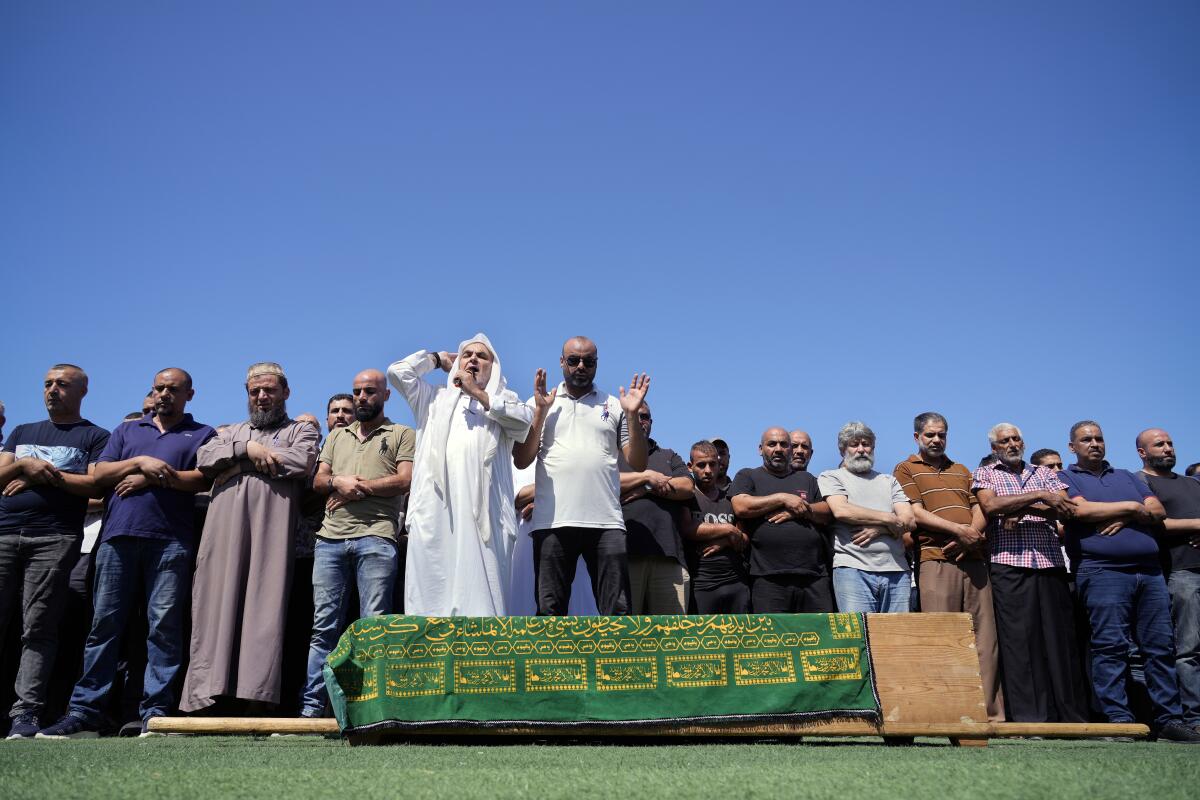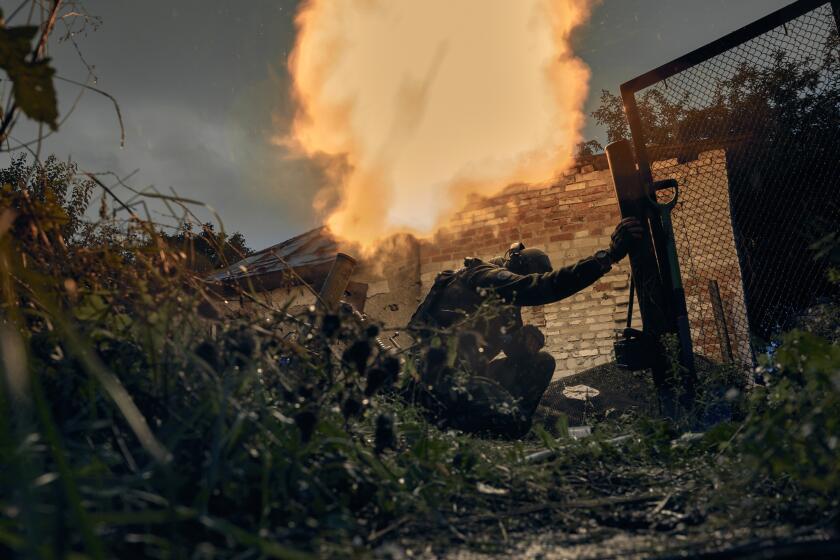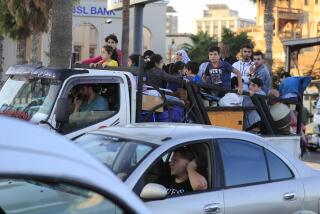In Lebanon, migrant boat tragedy kills 89, but others still plan to journey to Europe

- Share via
NAHR EL BARED, Lebanon — Thousands of Palestinians on Saturday held prayers on a small soccer field in a refugee camp in northern Lebanon to mourn one of the scores of migrants who died after their boat sank off Syria’s coast last week, even as others vowed to undertake the same perilous voyage.
Abdul-Al Abdul-Al, 24, kissed his father goodbye Tuesday before boarding a crowded boat leaving from a nearby town seeking a better life in Europe. It was his 14th attempt to flee the crisis-hit Mediterranean country, this time ending with the return of his body. He was to be buried in the camp where he was born, his father, Omar, told the Associated Press during the funeral procession.
The head of Al-Basel Hospital in Syria’s coastal city of Tartus said Saturday that the death toll had reached 89, adding that of the 20 others who had received treatment, six were discharged.
The Lebanese army announced Saturday that troops have detained the man who allegedly organized the deadly trip.
Kyiv and its Western allies say the votes underway in four regions of Ukraine are a sham with no legal force. Ukrainian President Volodymyr Zelensky urged residents to undermine ‘this farce.’
The incident was the deadliest so far as a surging number of Lebanese, Syrians and Palestinians have been trying to flee Lebanon by sea to Europe in search of jobs and stability. In Lebanon, tens of thousands have lost their jobs while the national currency has dropped more than 90% in value, eradicating the purchasing power of thousands of families and pulling three-quarters of the population into poverty.
Alongside 1 million Syrian refugees, the small country of Lebanon is home to tens of thousands of Palestinian refugees and their descendants. Many live in the dozen refugee camps that are scattered around the country. Palestinians suffer wide discrimination in Lebanon, where they are not allowed to do certain jobs or own property. Since the end of the 1975-90 civil war, many have migrated.
After noon prayers were held at Nahr el Bared, hundreds of people gathered in a yard used to play football where Abdul-Al’s coffin was placed. Prayers were held before the body was carried to a nearby cemetery where thousands of people had gathered to witness the young man being laid to rest.
Several others have been buried since Friday.
Omar Abdul-Al said that his son had tried to leave Lebanon before but did not succeed as sometimes the migrant boats he took had technical problems or faced high seas. Sometimes he had to swim back to shore, the father said.
“We don’t want to live here anymore. We want to leave,” said Omar Abdul-Al, adding that he encouraged his late son to leave and now he is encouraging his four other sons to leave Lebanon. He added that his sons are all well educated but they cannot find jobs.
“We are passing through a severe crisis. There is no medication or bread or anything,” the father said. He added that many other Palestinians had planned to go on the boat, but there was not enough room.
Another relative of Abdul-Al screamed that “there is a disaster in Nahr el Bared,” saying that about 30 people who were on the boat were now missing from the camp. At the same time, he said, people were selling their homes and cars in order to go.
There were conflicting reports on how many people were on board the boat when it sank, with some saying at least 120. Details about the ship, such as its size and capacity, were also not clear.
In the aftermath of the disaster, the Lebanese army said troops Friday stormed the homes of several suspected smugglers, detaining eight people involved in trafficking people abroad.
Residents in northern Lebanon say it costs about $6,000 for an adult and $3,000 for a child to reach Europe.
At the morgue, Omar Abdul-Al said he found his son’s body “intact,” though it was difficult to identify many of the dozens of other corpses there.
“Anyone that comes with a boat, people are ready to go,” he said.
Mroue reported from Beirut. Associated Press writer Albert Aji contributed to this report from Damascus.
More to Read
Sign up for Essential California
The most important California stories and recommendations in your inbox every morning.
You may occasionally receive promotional content from the Los Angeles Times.














